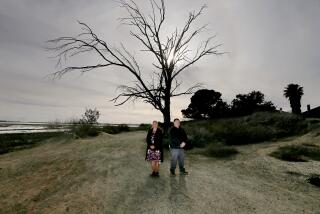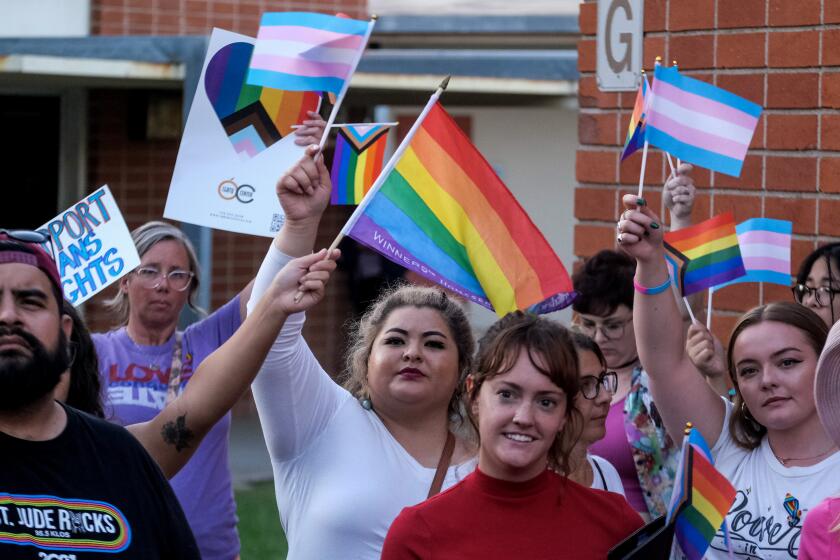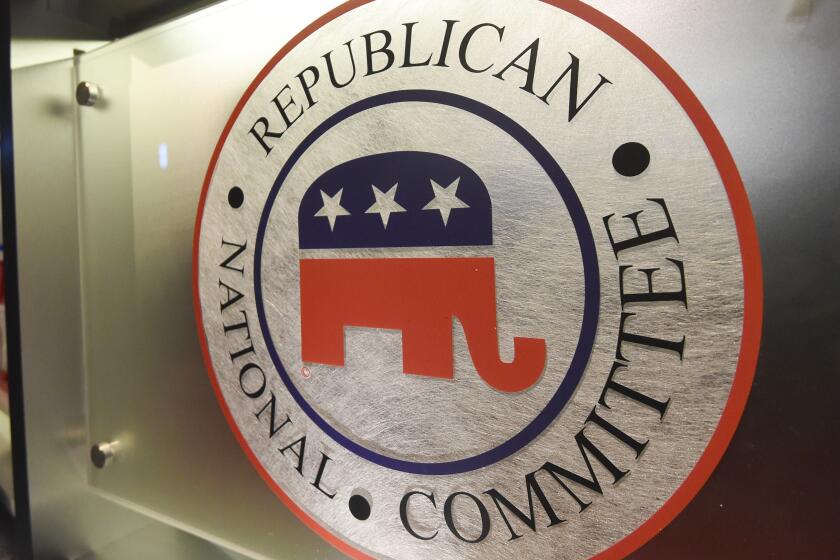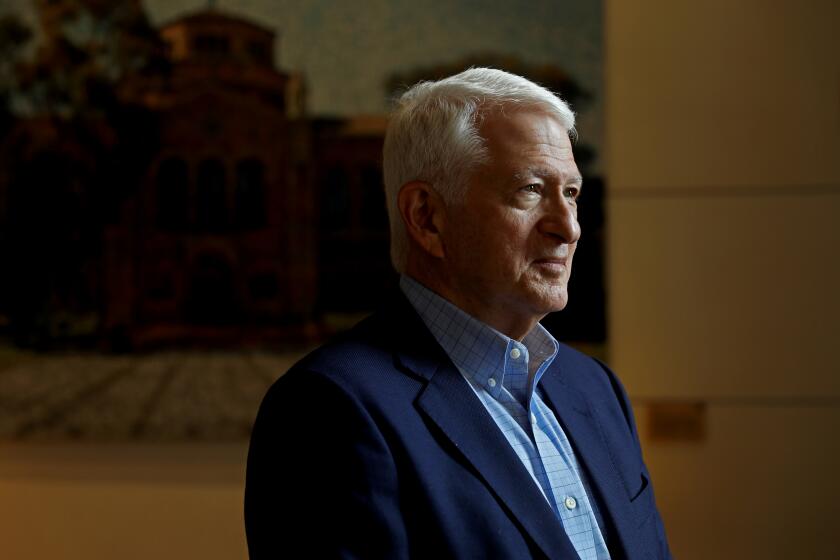Both Sides in Gun Control Fight See No Legislative Gains : Legislature: Political climate is not conducive to any changes, members say. But pro-gun activists spot signs of hope in committee votes by Democrats.
Fresh from losing a fight to the gun lobby, Democratic Assemblyman Louis Caldera of Los Angeles reluctantly conceded that tighter controls on firearms seem doomed to fail in the Legislature this session.
“The short-term outlook is bleak,” said Caldera, an advocate of tighter gun controls. “The long-term outlook is that we are going to get responsible legislation, whether it is through the Legislature or the initiative process.”
At his office near the Capitol, lobbyist Steve Helsley of the National Rifle Assn. was also nursing battle wounds. In a separate fight, the NRA’s top priority bill allowing virtually any law-abiding adult to carry a concealed gun for self-protection had gone down to defeat.
“We believe that the moral authority is quickly moving to our side of the argument on this one,” Helsley said. “Whether that will translate quickly enough this (legislative) session, I don’t know. But ultimately we are going to prevail.”
Both Caldera and Helsley, a persistent retired police officer, agree that the current political climate at the Capitol will prevent either side from getting a substantial victory this year.
With narrow exceptions, one gun bill after another has been killed in the Assembly Public Safety Committee, whose members are equally drawn from Republicans and Democrats and who demonstrate little inclination to compromise.
Likewise in the state Senate, there is scant enthusiasm for wholesale gun control changes in either direction, although activists on both sides are pressing ahead as they have for years.
Casualties of the fight over gun controls thus far include bills outlawing inexpensive Saturday night specials; making it illegal to leave home without securing firearms, and prohibiting civilians from possessing surplus night-vision sights from the Russian military.
But there appear to be subtle changes occurring, particularly on easing restrictions for carrying a firearm hidden in clothing or handbags.
For years, such legislation was regularly defeated by Democrats who dominated both houses, particularly those Democrats from inner cities whose police chiefs warned that more guns would make the streets more dangerous.
But in the Legislature, where progress often is measured in inches over long periods of time, Helsley found a significant victory in the defeat of the NRA’s concealed weapons bill: Only one Democrat voted against it and three others decided not to vote.
“We made a small step,” he said. “They (Democrats) got tremendous heat from their constituents on this one. The bill didn’t pass, but they didn’t make a statement with their no vote.”
All four committee Republicans voted for the bill, but it took five favorable votes for approval.
“Progress is being made,” said Assemblyman William J. (Pete) Knight (R-Palmdale), who carried the bill. “There is going to have to be a change in the makeup of the Assembly in order to get these kinds of bills through. I think that will occur by 1996.”
Knight and other Republicans are pinning their hopes on GOP victories in special Assembly elections in the coming months, contests that would restore the narrow majority that they won in November but lost the next month. The house is evenly split at 39-39, with one vacancy and one independent.
The NRA and other advocates of making concealed weapons permits more accessible to a wider range of citizens are expected to mount another effort today in the Senate Criminal Procedure Committee.
The NRA argues that police are unable to protect citizens from criminal violence and are impeding efforts of citizens to defend themselves by obtaining a concealed weapons permit.
Proponents maintain that any adult who is legally able to purchase a firearm should be allowed to carry it concealed. They argue that a patchwork of local rules established by police chiefs and sheriffs throughout the state benefits their friends in a “good old boys” network, while placing others at a disadvantage, including women and minorities.
“Whether or not you believe it is a good idea for people to carry guns concealed, you cannot support the arbitrary and capricious practice of law enforcement relating to the issuance of concealed-carry permits,” Helsley said.
Under state law, individual police chiefs and sheriffs determine whether an applicant has “good cause” to carry a concealed weapon, provided the person has no disqualifying criminal or mental history. Last year, there were 38,124 permits in California compared to 33,696 the year before.
The NRA and its supporters maintain that, at a minimum, the rules and regulations for permits should be standardized statewide. But police chiefs and sheriffs argue that uniform standards would ignore localized law enforcement issues.
“For Modoc County and Los Angeles County to have the same policy, I think, is ludicrous,” said Sheriff Glen Craig of Sacramento County, an outspoken opponent of loosening restrictions on concealed weapons permits.
However, Craig said he has heard that a compromise might be offered in which one set of standardized rules would apply to urban counties and a second set to less populated rural counties.
Senate President Pro Tem Bill Lockyer (D-Hayward) said he supports the concept of statewide uniform standards because there are “too many variations among counties.” But he said he is concerned that the risks of “intemperate behavior” increase substantially when “we just casually allow guns to be distributed throughout society.”
One of the few pieces of legislation expected to survive this year is a measure by Assemblyman Richard Katz (D-Sylmar) increasing from a misdemeanor to a felony the penalty for carrying a concealed stolen gun.
More to Read
Get the L.A. Times Politics newsletter
Deeply reported insights into legislation, politics and policy from Sacramento, Washington and beyond. In your inbox three times per week.
You may occasionally receive promotional content from the Los Angeles Times.






